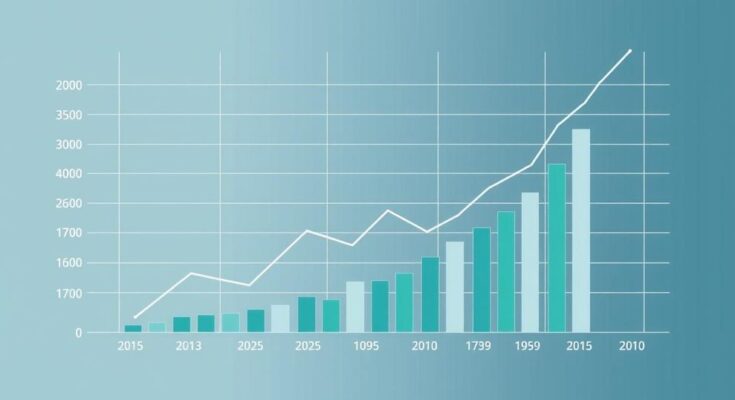China’s economy exhibits mixed signals with a four percent rise in retail sales, yet faces challenges such as increased unemployment and falling housing prices. Industrial production and growth targets remain ambitious amidst a trade war with the United States, demanding a shift towards boosting domestic consumption.
Recent data from the National Bureau of Statistics (NBS) in Beijing indicates both positive and negative trends in China’s economy. Retail sales, a crucial indicator of consumer sentiment, have seen a year-on-year increase of four percent for the months of January and February. However, rising unemployment and declining housing prices in major cities raise concerns about economic stability.
The unemployment rate among urban surveyed populations rose to 5.4 percent in February, which is above the expected 5.1 percent and represents the highest level recorded in two years. Furthermore, 68 of 70 major cities reported a decrease in housing prices compared to last year, highlighting challenges within the property sector. The NBS has indicated ongoing weakness in domestic demand and difficulties facing many enterprises.
Despite these challenges, industrial production grew by 5.9 percent year-on-year over the same two-month period, although this growth is a slowdown from the previous month. Beijing has set a growth target of five percent for the year, matching last year’s ambitious goal. The ongoing trade war with the United States under President Donald Trump has intensified pressure on Chinese officials to enhance domestic consumption and decrease dependence on exports.
Since taking office, President Trump has imposed tariffs resulting in a 20 percent increase on Chinese exports, leading to record shipment levels last year. NBS spokesman Fu Linghui mentioned, “The international environment will become more complex and severe in the next stage,” while emphasizing that the overall trend of international cooperation remains unchanged. To combat low consumer demand, the government has announced an action plan including reforms in the housing sector and childcare subsidies.
In summary, while China shows some signs of growth in retail sales and industrial production, rising unemployment rates and a decline in housing prices pose significant risks to its economic stability. The ongoing trade conflict with the United States places additional stress on domestic consumption, leading the government to seek measures to bolster the economy. The situation remains complex, necessitating careful monitoring and proactive responses.
Original Source: m.economictimes.com




